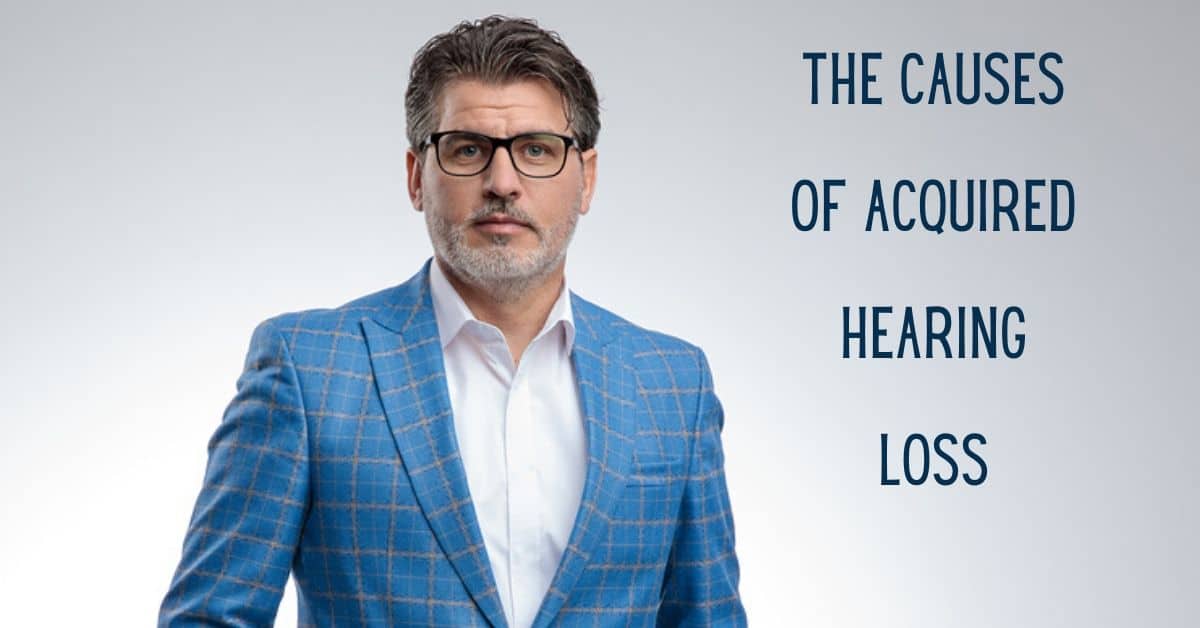
When you think of hearing loss, what is the first condition that comes to mind? Do you think of someone who is born with total deafness or serious hearing impairment? In a strictly technical sense, many practitioners do not think of these congenital conditions as hearing “loss” because the person began life with certain limitations on hearing ability. When many people think about hearing loss, they first consider the most common form of hearing loss due to a lifetime of exposure to sound. Most people who reach older age have some form of hearing loss, and this is a completely natural process. Without the ability to “blink” the ears, they have been exposed to sound from birth and throughout a range of sonic contexts, including noisy workplaces or recreational activities for some people. As you might expect, this exposure can lead to damage in the sensitive features of the inner ear, including the tiny hair-like cells of the cilia. Indeed, this form of hearing loss is acquired later in life and is incredibly common. Yet, there are many other forms of acquired hearing loss that occur after birth. The following are a few of the common causes of acquired hearing loss, some resulting from conditions that are beyond our control. Yet, others are preventable, and it is important to consider the steps you can take to ward off preventable forms of acquired hearing loss.
Ototoxic Chemicals
Exposure to certain chemicals can cause damage to hearing. These chemicals can be transmitted in a number of ways, but the most concerning way to contract ototoxic chemicals is through medication. Some medications can cause temporary or even permanent hearing loss, and they tend to be prescribed only in life-threatening circumstances. One of the most common ototoxic medications is used in chemotherapy for people with advanced forms of cancer. Of course, your doctor should make you aware of the possibility of hearing loss as a side effect of any medication, but you might want to take a look at the list of side effects for yourself with any newly prescribed medication. The first sign of ototoxicity when it comes to chemicals tends to be tinnitus, or ringing in the ears, so take note if you have a sudden onset of tinnitus that does not seem to be related to a noise-related event.
Ear Infections
Particularly among children, ear infections can be the source of temporary or permanent hearing loss. Defined by the area of the ear in which they take place, otitis media or otitis externa are two common forms of ear infections in the middle or outer ear, respectively. If they are treated promptly, they tend to lead to temporary hearing loss if any at all. However, if left untreated or recurring over a long period of time, ear infections can be a cause of permanent acquired hearing loss.
Other Medical Causes
A range of other medical conditions can result in hearing loss in rare cases. The list of conditions that in some cases can lead to hearing loss includes chicken pox, encephalitis, measles, meningitis, influenza, or mumps. Though many of these conditions are now rare on their own, it is also rare to have permanent hearing loss from them even if it is possible in some cases.
Injury to the Ear
Head trauma is one other cause of acquired hearing loss, and the range of injuries that can result in hearing loss are particular to the situation in which they occur. Injuries can affect the ear canal itself, and some cases of hearing loss can be permanent. Other injuries to the ear can actually occur through exposure to very loud sounds. When an explosion happens in proximity or another extremely loud sound, the eardrum can rupture, or other injuries can be caused through the pressure of extreme sound. Traumatic Brain Injuries, or TBI, can also do damage to the part of the brain that receives auditory information, causing the effect of hearing loss even if the ear itself was not damaged in the injurious event. In any of these cases, medical experts should be consulted in concert with hearing health professionals or audiologists to coordinate care for the underlying condition as well as the related hearing loss.
